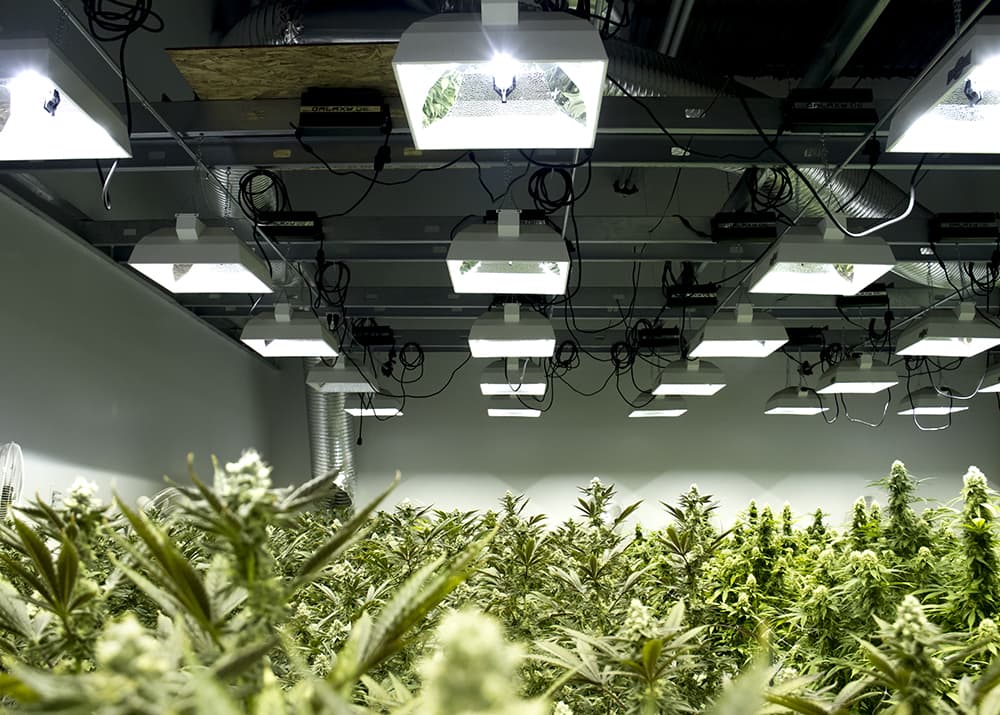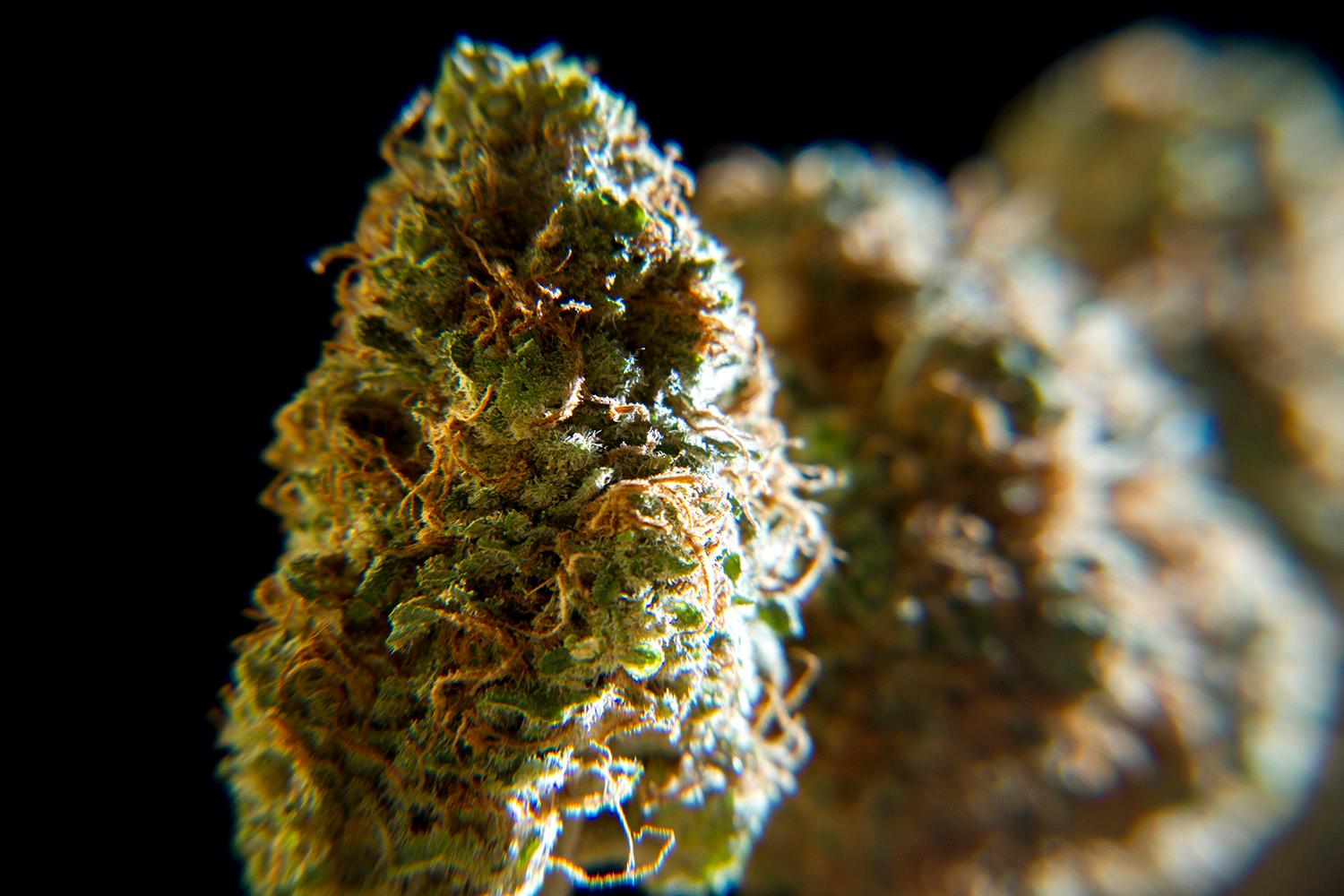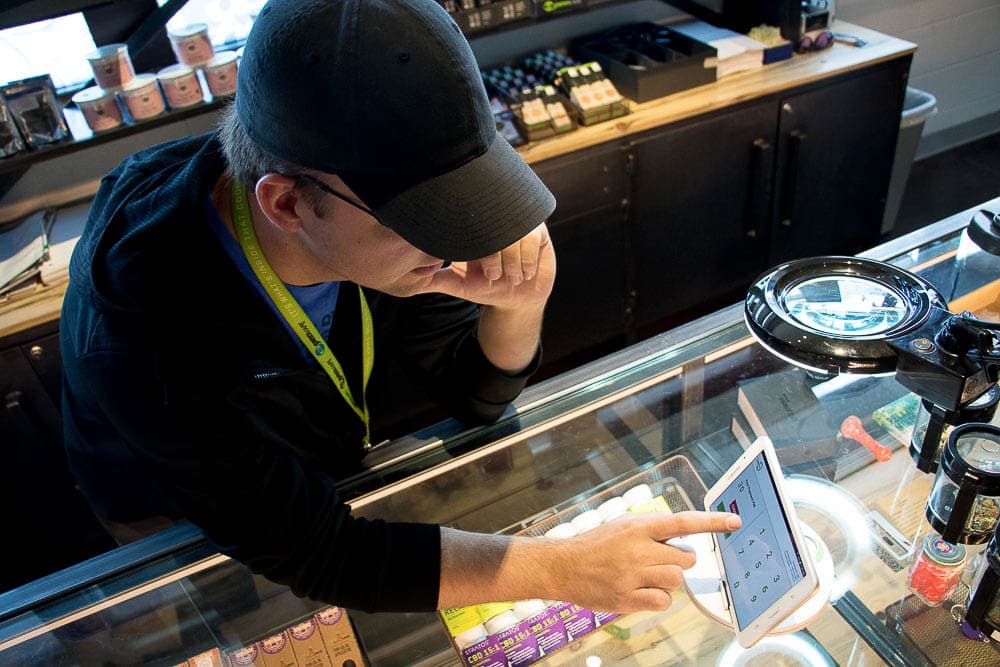
When it comes to pain treatment, some patients are getting their advice from marijuana dispensary employees instead of medical doctors. That might finally change as new research projects get underway in Colorado and beyond.
"Their patients are telling them that they’re trying or wanting to try cannabis as an alternative, but our providers don’t have any evidence-based research to say, 'Here’s what’s been shown, here's the route to take,'" said Dr. Emily Lindley, who's working on a cannabis research project at the University of Colorado's Anschutz Medical Campus.
"So, what our patients are doing instead are going to dispensaries and talking to the budtenders for medical advice."
Often, these people are trying to relieve pain in their necks and backs. Others use cannabis to treat the body-filling pain that can come with cancer.
Many say that they're looking for an alternative to addictive and overdose-prone drugs like oxycodone. They're doing it in large enough numbers that cannabis legalization may be driving down the use of opioids as patients switch to marijuana, and it may even be reducing the number of overdose deaths, as a new study showed.
Still, research on the topic is hugely incomplete even 21 years after California passed the first medical marijuana law.
"I want to be able to support patients in whatever possible, but I do say there’s the unknown in there -- how much to take -- and it would be trial and error for them," said Dr. Tom Purcell, president of the Rocky Mountain Oncology Society and a faculty member at the University of Colorado Cancer Center.
"They have to take it at their own risk," he added.
That's part of what inspired the new CU research project.
"You hear so much anecdotal information that you really have to think, 'Wow, is there something to this?'" said Dr. Jacci Bainbridge, a professor in CU's department of clinical pharmacy who is working with Lindley.
In 2011, doctors at CU's spine clinic noticed that more patients were using weed for back and neck pain, and it seemed to be working. In 2012, a survey found that almost 20 percent of their patients were using cannabis to treat pain. Of those, 85 percent reported moderate or significant benefits.
"We found it was across a wide range of ages," said Lindley, who works in Anschutz's spine surgery division. "They tended to be a little bit younger, but some were in their 80s."
Five years later, Lindley and Bainbridge are ready to begin ther research, along with research fellow Matthew Makelky. In an experiment that is just getting underway, they will test the effects of cannabis, placebos and oxycodone on 50 people who suffer from chronic pain and 50 who don't. (If you'd like to participate, email the team at [email protected].)
The experiment, funded with more than $700,000 from the state of Colorado, may be the first to test how well active cannabis kills pain compared to a popular prescription opioid.
"This is in our view the very first step," she said. "Is cannabis better than, worse than or equal to a commonly prescribed opioid?"
That question's getting more and more relevant.
Opioid overdoses have quadrupled since 1999, and close to half involve prescription opioids, rather than heroin.
In fact, use of prescription painkillers is growing nearly as fast as marijuana use: Every day, an estimated 5,800 people in the U.S. start misusing prescription pain relievers, compared to an estimated 7,100 new marijuana users each day.
The opioid epidemic has fueled the push for new alternatives, and a handful of pharmaceutical companies have even taken the first steps toward developing cannabis-based painkillers -- but the research at times can be painfully slow.
"It took, if I remember correctly, 24 months just to get to the point where we could order our cannabis," Lindley said.
They ultimately got five ounces of cannabis and 10 ounces of non-active placebo weed. That much weed would have cost $1,000 or less at many stores.
Despite living and working in Colorado, the researchers had to work with cannabis produced by the National Institute on Drug Abuse at the University of Mississippi, currently the only facility licensed to grow weed for research. Its cannabis is generally said to be low-potency and nothing like the commercial weed available here.
"Part of the problem is, if you want to do clinical research, you still have to do it with the crap that Ole Miss provides," said Mark Kleiman, a professor of public policy at New York University.
That limit might change soon: The feds have said they plan to allow more research cultivators, which could speed the pace and variety of research.
At the same time, though, Attorney General Jeff Sessions has been dismissive of the idea of weed replacing opiates. It's "almost a desperate attempt to defend the harmlessness of marijuana or even its benefits," as he said in February.
"I doubt that's true. Maybe science will prove I'm wrong."
We'll see.
"So far, the research isn’t that firm at all ... It’s not like a done deal," Bainbridge said. "We’re really going to need to improve that with well-designed trials."
She thinks that her and Lindley's study will be among the deepest to take on the question of marijuana as a painkiller. Each subject will come in for several test sessions. They'll vaporize marijuana in one session, take oxycodone in another and take placebos in a third. In each session, placebo weed and placebo pills will keep the subjects from knowing what they're really using.
The researchers will use a small clamping device on subjects' legs to lightly test their pain threshold, which doesn't sound like much fun if you're high.
The experiment runs through summer 2019. If the results are promising, it could lead to extended tests where patients use cannabis for long periods of time. Previous research that has found evidence for weed as a chronic painkiller, but we're far from a solid answer, she said.
"I think we’re still very early," Lindley said.
But marijuana already may be replacing opioids.
In the early days of legal marijuana, many lawmakers hoped it would have one benefit: They thought that people might smoke more weed and drink less booze.
"I think most of us, going on abstract principals, would have guessed that cannabis would have turned out to be a substitute for alcohol and not much else," said Kleiman, who has long followed marijuana policy issues.
"Anyone who believed that, as I did, would have been wrong twice."
There has been little proof that cannabis is replacing alcohol, he said -- but the idea of marijuana as an opioid replacement has entered the scientific mainstream in the last few years, Kleiman said.
The results of the first handful of studies have been striking: One study found that medical cannabis laws might be associated with a 25 percent drop in overdose deaths.

In 2015, a study from the National Bureau of Economic Research found that people were using weed to treat chronic pain and that "providing broader access to medical marijuana" could reduce abuse of "highly addictive painkillers."
Most recently, a study found that a recent decline in opioid deaths in Colorado could be linked to the legalization of recreational marijuana. The preliminary findings showed a 6.5 percent drop in opioid deaths in 2014 and 2015 following full legalization. Earlier studies have found similar results from medical marijuana.
"I’m prepared to take that one very seriously -- which would mean that it would be not surprising if Colorado had had a radical shift in cannabis availability leading to a trend break for overdoses. There’s nothing illogical about that," Kleiman said.
If weed really is changing opioid use, there may be a few explanations, he said.
It may be that people replace opioid painkillers with marijuana. They also could be using less opioids because marijuana can multiply the effects of the painkillers. Finally, it's also possible that they are combining weed and opioids instead of using the potentially deadly combination of opioids and alcohol, he said.
David Hakala, a Denverite reader, said that he uses THC edibles to supplement oxycodone for chronic arthritis.
"The THC makes me sleepy and unsteady, even at low doses ... But when oxy just isn't getting the job done, THC does," Hakala wrote in an email. "In my case, the pain that oxy leaves becomes more 'distant' from my consciousness; I note that there is pain intellectually, but I don't feel pain as much."
However, Kleiman is skeptical of the study claiming a drop in overdose deaths in Colorado, asking why the reversal didn't begin with the earlier explosion of medical cannabis. He wants to see the findings replicated in other states.

What's next?
The nearly universal response is that it will take more research and time to see if marijuana will play any role in replacing opioids.
In Colorado, officials have been very cautious about marijuana's potential benefits.
"What we can say is at least there wasn't an increase (in opioid deaths) since marijuana legalization," wrote Dr. Larry Wolk, director of the Colorado Department of Public Health and Environment, "but we should caution against taking the leap there is any kind of direct association between marijuana legalization and decreases in opiate death rates."
Meanwhile, Kleiman, the NYU professor, wants to see a massive increase in marijuana research.
"We should be giving 100 different strains to 10,000 different patients, observing the consequences and working backwards," he said.
"We need to know as much about marijuana as Pillsbury knows about brownie mix. The problem is, it’s boring science," he continued. "Nobody’s going to get a scientific promotion for studying 37 different strains of cannabis in a Colorado pot store to figure out which one does the most for pain relief."
Without that kind of information, patients are stuck doing research on themselves.
And while that happens, Kleiman worries that the negative health impacts of marijuana -- including marijuana use disorder, which we explained previously, are running nearly unchecked.
"We’re letting the prices collapse, we’re letting heavy use run crazy — and because we’re still having the legalization debate, the cannabis advocates just don’t want to pay attention to the problem of cannabis use disorder," Kleiman said.
"It's got me staying awake nights."













